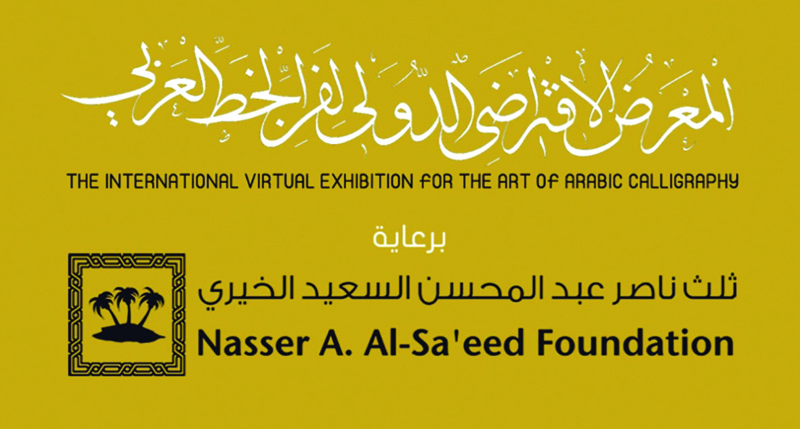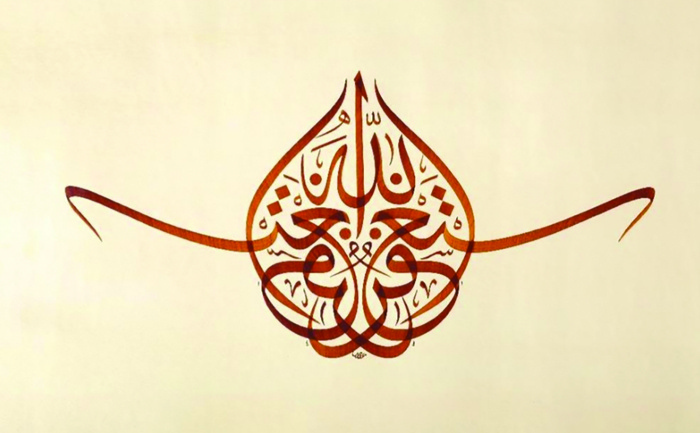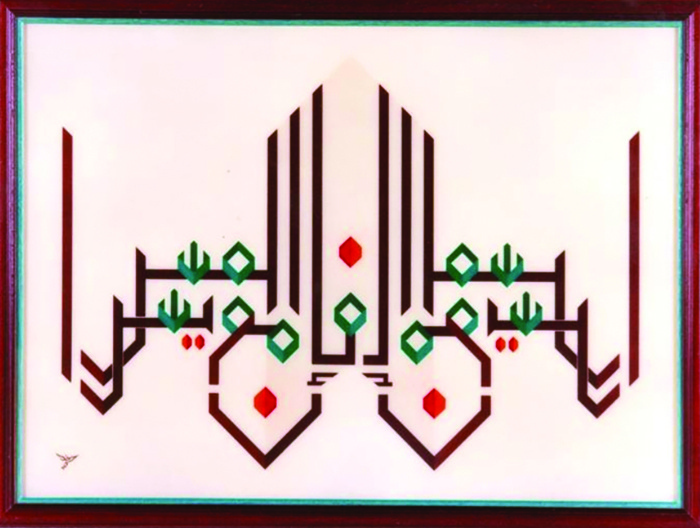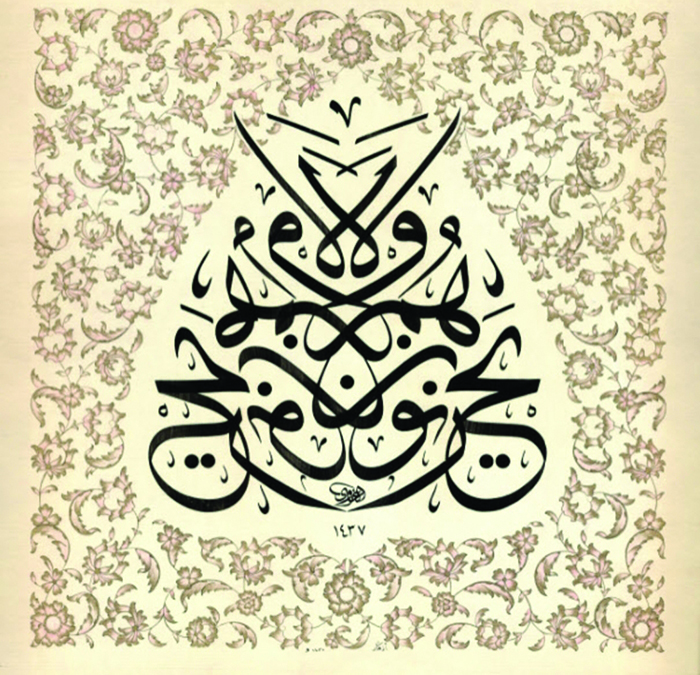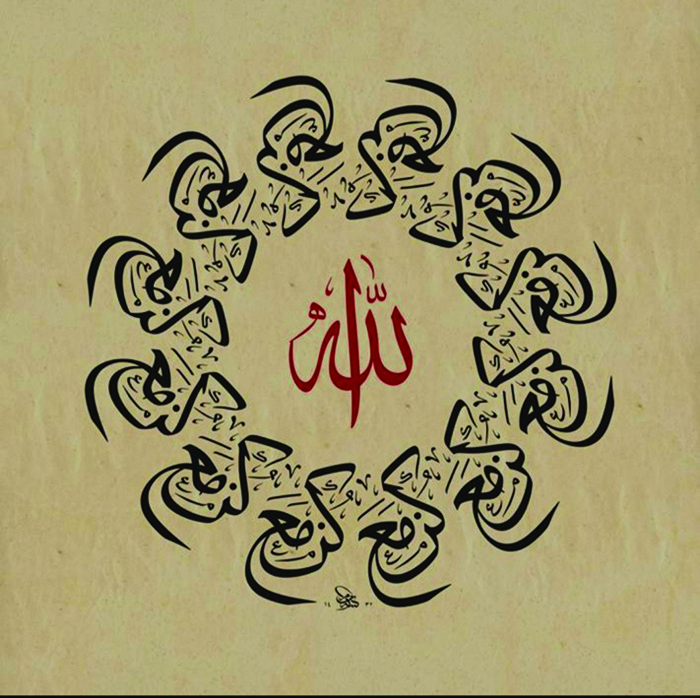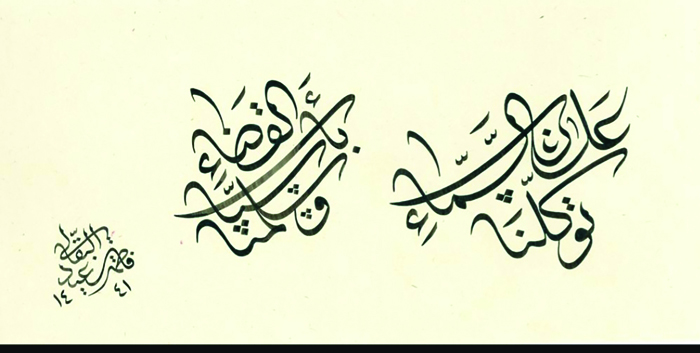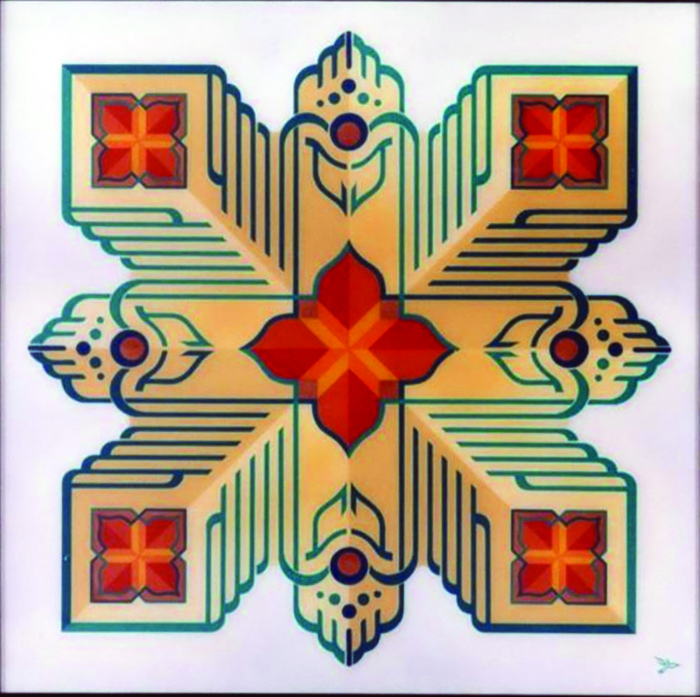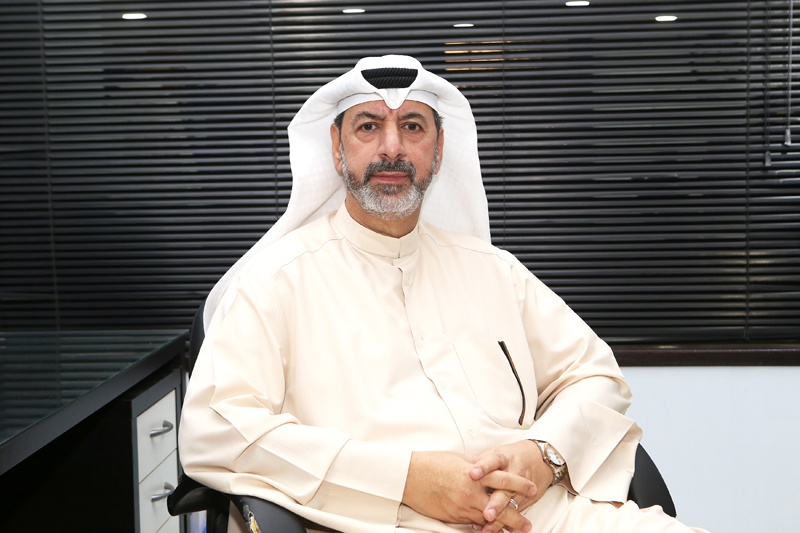
By Ben Garcia
The International Virtual Exhibition for the Art of Arabic Calligraphy, under the sponsorship of Nasser Al-Saeed Foundation, is an online art exhibition with the participation of 32 countries and 103 artists from around the world. The exhibition's gallery has more than 374 works of renowned calligraphers worldwide. The exhibition was made possible through the efforts of Farid Al-Ali, President of Kuwait Islamic Arts Center based at the Grand Mosque of Kuwait.
"The idea started when we were all under the lockdown and curfews because of the pandemic. I organized a series of virtual meetings with other artists and art lovers and encouraged them to continue propagating art and culture even if we are all facing difficult situations," he said. "I don't agree to the idea that we should stop advocating and doing something for arts and culture. If we stop, it will substantially affect generations of people to come," Ali told Kuwait Times.
Artists all over the world are inseparable parts of their societies, so it is not surprising to witness their positive contributions to social and human causes. Hence the endeavors of many calligraphers to contribute to humanitarian efforts to mitigate the effects of the pandemic by spreading beauty and disseminating Quranic verses, prophetic sayings and wisdom that inspire hope, resilience and ability to withstand the current conditions until the crisis is over.
"Calligraphers sought to achieve such a goal through written works inspired by the textual meaning to formulate aesthetic and iconic forms, all to be showcased digitally to allow the message of this exhibition to reach as many people as possible without breaching social distancing precautions. We hope this initiative brings us a step closer to each other despite geographical boundaries, as it features works by calligraphers from all over the world," Ali said.
Aesthetic therapy
"This exhibition also aims to send a message of solidarity emanating from the principles of Kuwait's culture and stemming from its Arabic and Islamic roots - a message to strengthen brotherhood and promote collaboration in the face of the challenges posed by the pandemic. It reminds us of the values that give us strength in facing difficulties of any kind," he added.
The exhibition is a professionally designed virtual tour that includes verses from the Holy Quran as aesthetic therapy. "These are inspiring words interpreted through calligraphy by various artists from different countries. They can be understood by anyone because it's translated into English. It will help ease their burden, get motivated and always trust in the wisdom of Allah Almighty and be thankful to what we have and the messages of hope from Allah," Ali said.
"The visitor may notice some inconsistency in the resolution of the works exhibited here and other issues that fall beyond the will of the organizers, due to the circumstances of the participating calligraphers. Some of the works were written in difficult circumstances, which make us thankful to everyone who contributed to this exhibition by organizing, participating or sponsorship, and we thank in particular Nasser Abdul Mohsen Al-Saeed Foundation for their cooperation and generous support for cultural projects," he said.
Ali expressed gratitude to his fellow Kuwaiti calligraphers who participated in the success of this virtual exhibition, particularly Mashael Al-Trabelsi, Ayman Hassan, Jassem Maraj and Jasser Al-Shammari. "I would also like to thank the assisting team, Shaaban Haridi and Amr Taha, in addition to Khaled Khalawi, the technical official," Ali added.
About Farid Al-Ali
Born in 1957, Ali is the Director of the Kuwait Islamic Arts Center and member of the Int'l Society of Art (UNESCO). He is also a member of the Egyptian Society for Arabic Calligraphy, member of Emirates Formative Arts Society and member of the Arabic Formative Arts and Graphics Society. He has participated in over 50 domestic exhibitions, over 13 philanthropic exhibitions in Kuwait, Spain and Canada, and participated and represented Kuwait in 60 exhibitions around the world.
Ali has also organized 21 solo exhibitions in Kuwait, Oman, Turkey, India, China, Tehran, Sharjah, Abu Dhabi, Beirut, Cairo, Al-Mansourah, Alexandria, Jordan, Paris, Sarajevo and London. He won the International Prize of Quran at the 11th gathering for the Holy Quran in Tehran in 2003. He has designed and written many inscriptions in mosques in Kuwait, Egypt, Iran, India and China.
Ali published a book titled (Formation in Holy Articulation) in 1997, received an appreciation certificate from HH the Crown Prince of Kuwait and conducted many art workshop and lectures locally and regionally. He published his second book (Mohammediyat) in 2005, prepared and presented 'Naqsh' program for Almishkat TV and organized many calligraphy exhibitions and contests.
He has been a jury member for many calligraphy contests, designed the facade of the Islamic Studies Department using the Kufic script, designed the new facade of the Public Authority of Awqaf in collaboration with Muthanna Al-Obaii, designed the mural for the National Council for Culture, Arts and Literature celebrating the Arabic language and designed the inscriptions at Saad bin abi Waqqas Mosque in Kaifan.
